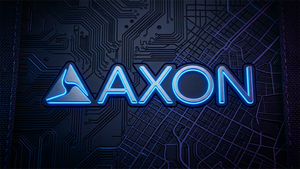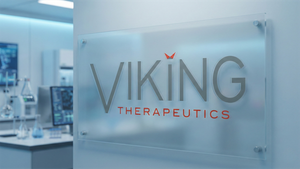– Represents second IND clearance for CNTY-101, the Company’s lead iPSC-derived CD19-targeted CAR NK cell product candidate, and first in an autoimmune and inflammatory disease indication –
– Company plans to initiate the Phase 1 clinical trial in the first half of 2024; initial data expected by year-end 2024 –
– CNTY-101 is the first cell therapy product candidate engineered with six precision gene edits including a CD19-CAR, Allo-Evasion™ technology, IL-15 cytokine support and a safety switch –
PHILADELPHIA, Dec. 06, 2023 (GLOBE NEWSWIRE) -- Century Therapeutics (NASDAQ: IPSC), an innovative biotechnology company developing induced pluripotent stem cell (iPSC)-derived cell therapies in immuno-oncology and autoimmune and inflammatory disease, today announced that the Company has been notified by the U.S. Food and Drug Administration (FDA) that the Company’s Phase 1 clinical trial may proceed to assess CNTY-101 in patients with moderate to severe systemic lupus erythematosus (SLE) who have failed at least two standard immunosuppressive therapies. This represents the first Investigational New Drug (IND) application clearance for an autoimmune and inflammatory disease indication for CNTY-101, and is built on the emerging data and experience gained from administering multiple cycles of CNTY-101, with and without lymphodepletion, under the open IND for CNTY-101 in relapsed/refractory B-cell malignancies.
Despite recent advances, therapies for SLE have failed to make a significant impact on morbidity, and induction of remission remains rare, while treatment toxicity and disease flares are common. B-cell-directed autologous CAR T cell therapies have provided new hope for durable remissions through an “immune reset”. However, some of the challenges encountered with auto-CAR-T in oncology related to product availability, toxicities, and potential long-term risks could hamper their wide-spread adoption in non-oncology indications. Century is pursuing an alternative approach with CNTY-101, an allogeneic, off-the-shelf iPSC-derived NK cell product candidate. CNTY-101 contains 6 genetic edits at defined loci, engineered via homology directed repair using CRISPR. These include three Allo-Evasion™ edits, secreted IL-15, a CD19 CAR, and a safety switch allowing for cell removal if required. As a homogenous NK cell candidate derived from a single iPSC clone, CNTY-101 has been designed with uniquely engineered features which Century believes may provide multiple potential treatment advantages. These potential advantages include availability of a consistent off-the-shelf frozen product, an improved tolerability profile, ability to be re-dosed without lymphodepletion while avoiding allo-rejection of the product, and a product design that may enable the elimination of B cells to effect a decline in auto-antibodies without prolonged B cell aplasia.
“Today marks an important milestone in Century’s evolution as a company. We believe the unique profile of CNTY-101, which incorporates multiple precision edits including our Allo-Evasion™ technology, positions it as an off-the-shelf allogeneic treatment option that could meaningfully improve outcomes for patients with SLE for whom existing therapies fall short,” said Brent Pfeiffenberger, Pharm.D., Chief Executive Officer of Century Therapeutics. “The expansion of the CNTY-101 program into SLE represents a significant achievement for the Company, and, importantly, serves as a testament to the unwavering dedication of our team as we continue to execute on our mission to advance differentiated and potentially curative cell therapies to patients with cancer and autoimmune and inflammatory diseases.”
The multi-center Phase 1 clinical trial is designed to assess the safety, tolerability, pharmacokinetics, and clinical response of CNTY-101 in patients with moderate to severe SLE who have failed at least two standard immunosuppressive therapies. The trial will evaluate one to two cycles of 3 weekly doses of CNTY-101, with lymphodepletion only included prior to the first CNTY-101 infusion. The Company plans to initiate the trial in the first half of 2024, with initial data expected by the end of 2024.
About Allo-Evasion™
Century’s proprietary Allo-Evasion™ technology is used to engineer cell therapy product candidates with the potential to evade identification by the host immune system so they can be dosed multiple times without rejection, enabling increased persistence of the cells during the treatment period and potentially leading to deeper and more durable responses. More specifically, Allo-Evasion™ 1.0 technology incorporates three gene edits designed to avoid recognition by patient/host CD8+ T cells, CD4+ T cells and NK cells. Knockout of beta-2-microglobulin or β2m, designed to prevent CD8+ T cell recognition, knock-out of the Class II Major Histocompatibility Complex Transactivator, or CIITA, designed to prevent CD4+ T cell recognition, and knock-in of the HLA-E gene, designed to enable higher expression of the HLA-E protein to prevent killing of CNTY-101 cells by host NK cells. Allo-Evasion™ technology may allow the implementation of more flexible and effective repeat dosing protocols for off-the-shelf product candidates.
About CNTY-101
CNTY-101 is an investigational off-the-shelf immunotherapy product candidate that utilizes iPSC-derived natural killer (NK) cells with a CD19-directed chimeric antigen receptor (CAR) and includes Century’s core Allo-Evasion™ edits designed to overcome the three major pathways of host versus graft rejection - CD8+ T cells, CD4+ T cells and NK cells. In addition, the product candidate is engineered to express IL-15 to provide homeostatic cytokine support, which has been shown pre-clinically to improve functionality and persistence. Further, to potentially improve safety, the iNK cells were engineered with an EGFR safety switch, and proof-of-concept studies have demonstrated that the cells can be quickly eliminated by the administration of cetuximab, an antibody against EGFR approved by the U.S. Food and Drug Administration for certain cancers. Century is currently assessing CNTY-101 in patients with relapsed or refractory CD19-positive B-cell lymphomas in its Phase 1 ELiPSE-1 clinical trial and intends to initiate its second Phase 1 clinical trial assessing CNTY-101 in patients with moderate to severe systemic lupus erythematosus.
About Century Therapeutics
Century Therapeutics (NASDAQ: IPSC) is harnessing the power of adult stem cells to develop curative cell therapy products for cancer and autoimmune and inflammatory diseases that we believe will allow us to overcome the limitations of first-generation cell therapies. Our genetically engineered, iPSC-derived cell product candidates are designed to specifically target hematologic and solid tumor cancers, with a broadening application to autoimmune and inflammatory diseases. We are leveraging our expertise in cellular reprogramming, genetic engineering, and manufacturing to develop therapies with the potential to overcome many of the challenges inherent to cell therapy and provide a significant advantage over existing cell therapy technologies. We believe our commitment to developing off-the-shelf cell therapies will expand patient access and provide an unparalleled opportunity to advance the course of cancer and autoimmune and inflammatory disease care. For more information on Century Therapeutics please visit www.centurytx.com.
Century Therapeutics Forward-Looking Statement
This press release contains forward-looking statements within the meaning of, and made pursuant to the safe harbor provisions of, The Private Securities Litigation Reform Act of 1995. All statements contained in this press release, other than statements of historical facts or statements that relate to present facts or current conditions, including but not limited to, statements regarding our clinical development plans and timelines, are forward-looking statements. These statements involve known and unknown risks, uncertainties and other important factors that may cause our actual results, performance, or achievements to be materially different from any future results, performance or achievements expressed or implied by the forward-looking statements. In some cases, you can identify forward-looking statements by terms such as “may,” “might,” “will,” “should,” “expect,” “plan,” “aim,” “seek,” “anticipate,” “could,” “intend,” “target,” “project,” “contemplate,” “believe,” “estimate,” “predict,” “forecast,” “potential” or “continue” or the negative of these terms or other similar expressions. The forward-looking statements in this press release are only predictions. We have based these forward-looking statements largely on our current expectations and projections about future events and financial trends that we believe may affect our business, financial condition, and results of operations. These forward-looking statements speak only as of the date of this press release and are subject to a number of risks, uncertainties and assumptions, some of which cannot be predicted or quantified and some of which are beyond our control, including, among others: our ability to successfully advance our current and future product candidates through development activities, preclinical studies, and clinical trials; the timing of and our ability to initiate and successfully enroll the Phase 1 SLE trial, our dependence on the success of our lead product candidate, CNTY-101; uncertainties inherent in the results of preliminary data, pre-clinical studies and earlier-stage clinical trials being predictive of the results of early or later-stage clinical trials; our ability to obtain FDA clearance of our future IND submissions and commence clinical trials on expected timelines, or at all; our reliance on the maintenance of certain key collaborative relationships for the manufacturing and development of our product candidates; the timing, scope and likelihood of regulatory filings and approvals, including final regulatory approval of our product candidates; the impact of geopolitical issues, banking instability and inflation on our business and operations, supply chain and labor force; the performance of third parties in connection with the development of our product candidates, including third parties conducting our clinical trials as well as third-party suppliers and manufacturers; our ability to successfully commercialize our product candidates and develop sales and marketing capabilities, if our product candidates are approved; our ability to recruit and maintain key members of management and our ability to maintain and successfully enforce adequate intellectual property protection. These and other risks and uncertainties are described more fully in the “Risk Factors” section of our most recent filings with the Securities and Exchange Commission and available at www.sec.gov. You should not rely on these forward-looking statements as predictions of future events. The events and circumstances reflected in our forward-looking statements may not be achieved or occur, and actual results could differ materially from those projected in the forward-looking statements. Moreover, we operate in a dynamic industry and economy. New risk factors and uncertainties may emerge from time to time, and it is not possible for management to predict all risk factors and uncertainties that we may face. Except as required by applicable law, we do not plan to publicly update or revise any forward-looking statements contained herein, whether as a result of any new information, future events, changed circumstances or otherwise.
For More Information:
Investors/Media: Melissa Forst/Maghan Meyers – century@argotpartners.com






